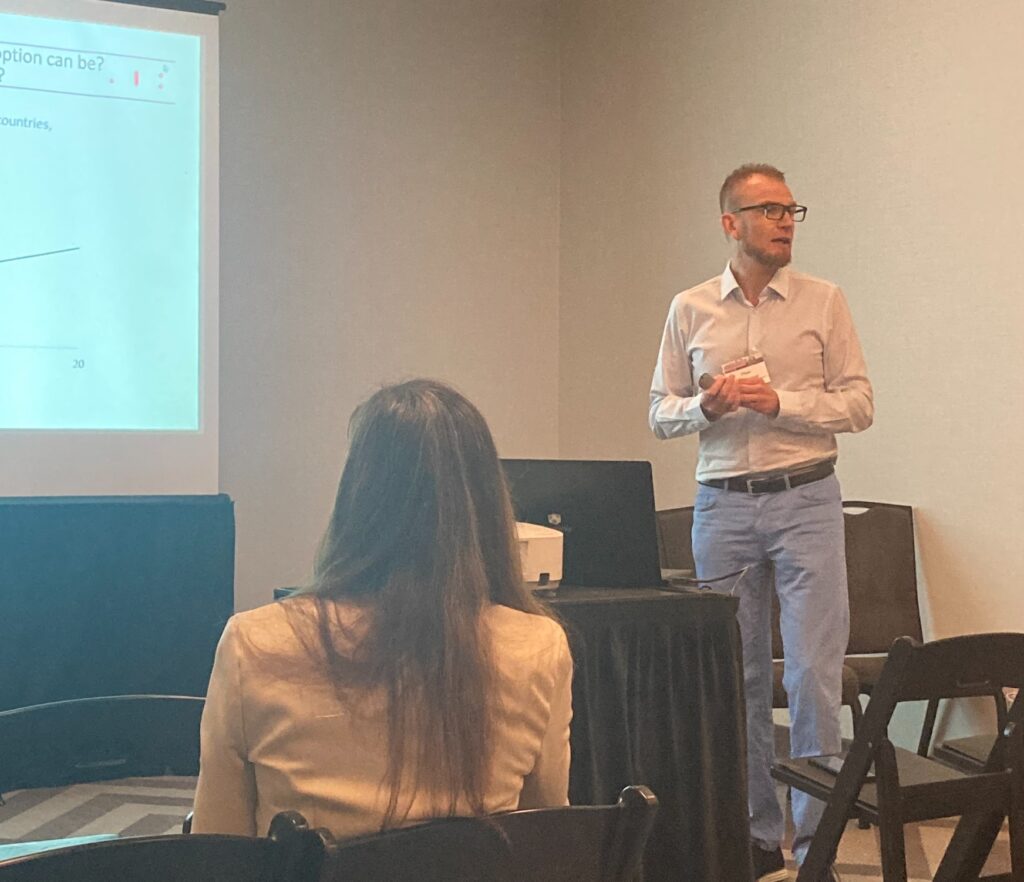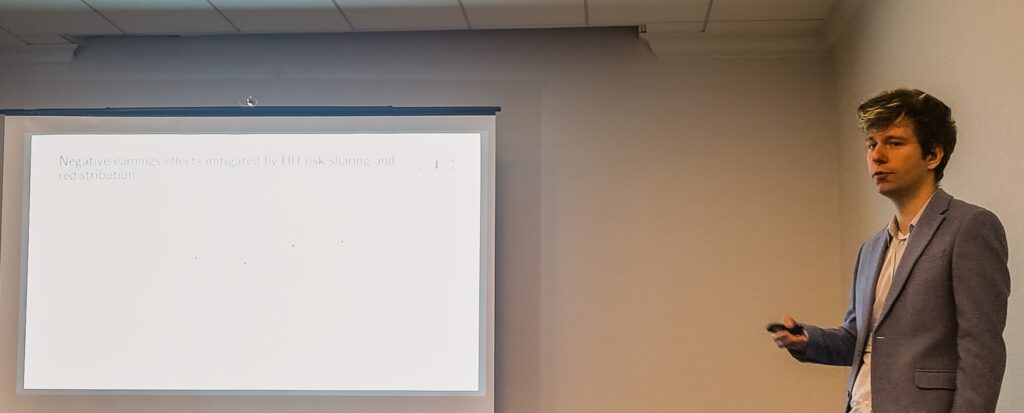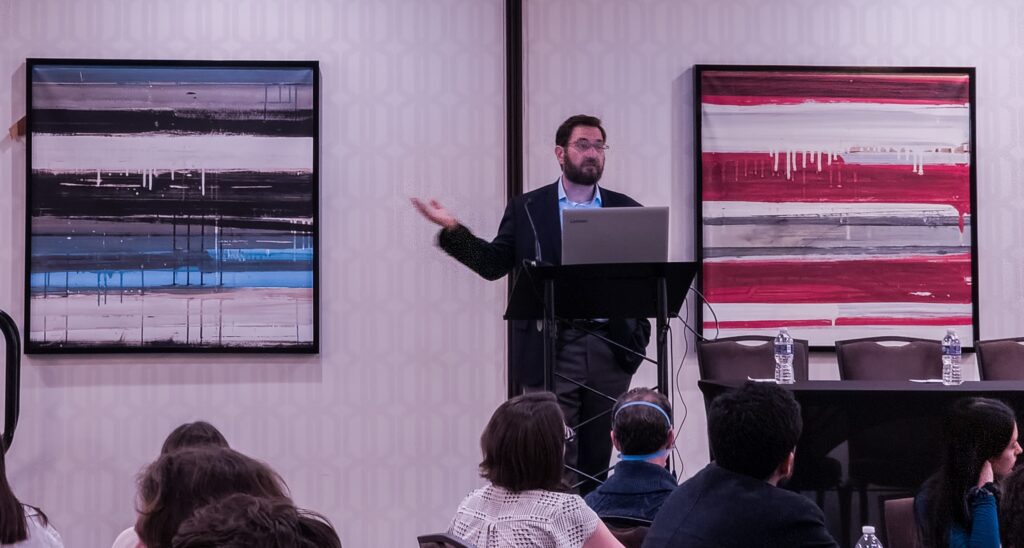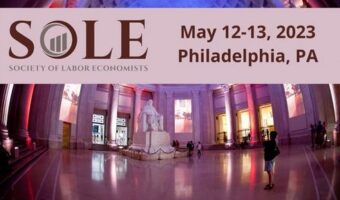The meeting of leading economy researchers took place in Philadelphia this year.
Presentation of IBS research results at the SOLE conference
Piotr Lewandowski presented a study on the valuation of working from home by employees and employers in a session on matching and preferences.

In addition, in this session, Kyle Greenberg of West Point Military Academy talked about using a deferred acceptance algorithm to match officers to military units. And Alicia Modestino of Northeastern University described the barriers to matching participants in active labour market policies with employer offers.
Chairing panel discussions

Jan Gromadzki chaired a session on the dynamic effects of technological change on workers. He also spoke about the results of a study on the critically important issue of the impact of automation on income inequality in Europe.
We also had the pleasure of learning about three other studies in this session. Natalie Duncombe from the University of Wisconsin-Madison talked about the life-cycle effects of automation. Later Erik Katovich from the University of Geneva spoke about oil extraction. She showed who loses and who gains from the sudden expansion of the oil extraction sector. Finally, Kevin Lang of Boston University presented a fascinating model using the example of coachmen in the early 20th century. The model explains workers’ behaviour in response to the inevitable approach of labour-replacing technology. Piotr Lewandowski pointed out that his model could apply to artificial intelligence technology, potentially replacing economists. The former president of the American Society of Labour Economists agreed with him.

Three keynote lectures were delivered during the conference. Jesse Rothstein of the University of California, Berkeley, presented a fascinating look at estimating the impact of sectors and geographical location on wages. The next speaker was Thomas Lemieux of the University of British Columbia. The President of the SOLE revisited the issue of the impact of unions on wages in his lecture. Finally, V. Joseph Hotz of Duke University addressed the racial disparities in private funding of higher education. This study concerned families in the United States.
The SOLE Annual Meeting offered us knowledge, inspiration and fascinating discussions. Therefore IBS trip to SOLE will also be remembered as an opportunity to make new contacts and renew existing ones.

